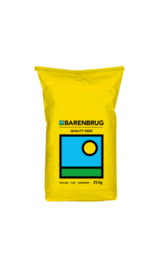Buckwheat is a valuable cover crop known for its rapid growth. It is often employed to suppress summer annual weeds and enhance soil quality within short windows, particularly between warm-season crops or during the transitional phases between winter and summer annuals. One of its unique characteristics is its ability to scavenge for phosphorus that would otherwise be unavailable to crops, and as the buckwheat residues break down, this essential nutrient is released for the benefit of subsequent crops.
Additionally, buckwheat offers excellent pollinator value. Its vibrant flowers attract a variety of pollinators, including bees, and it also draws beneficial insects like ladybirds, hoverflies, and tachinid flies. This dual-purpose nature of buckwheat makes it a valuable addition to sustainable farming practices, promoting both weed control and biodiversity in agricultural ecosystems.



